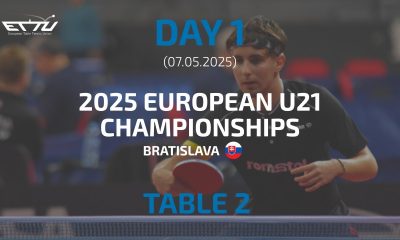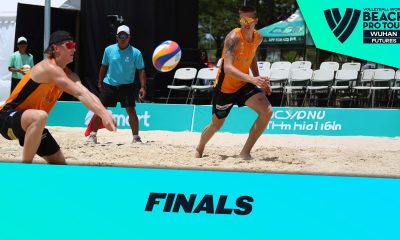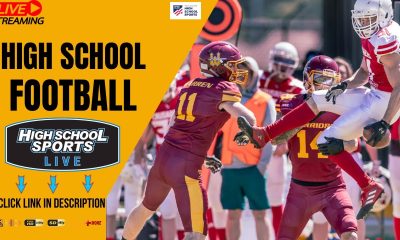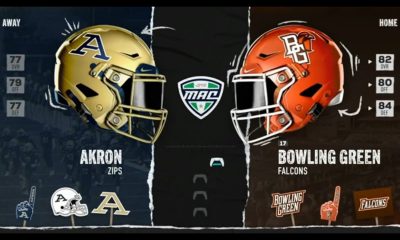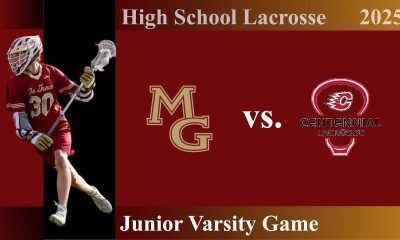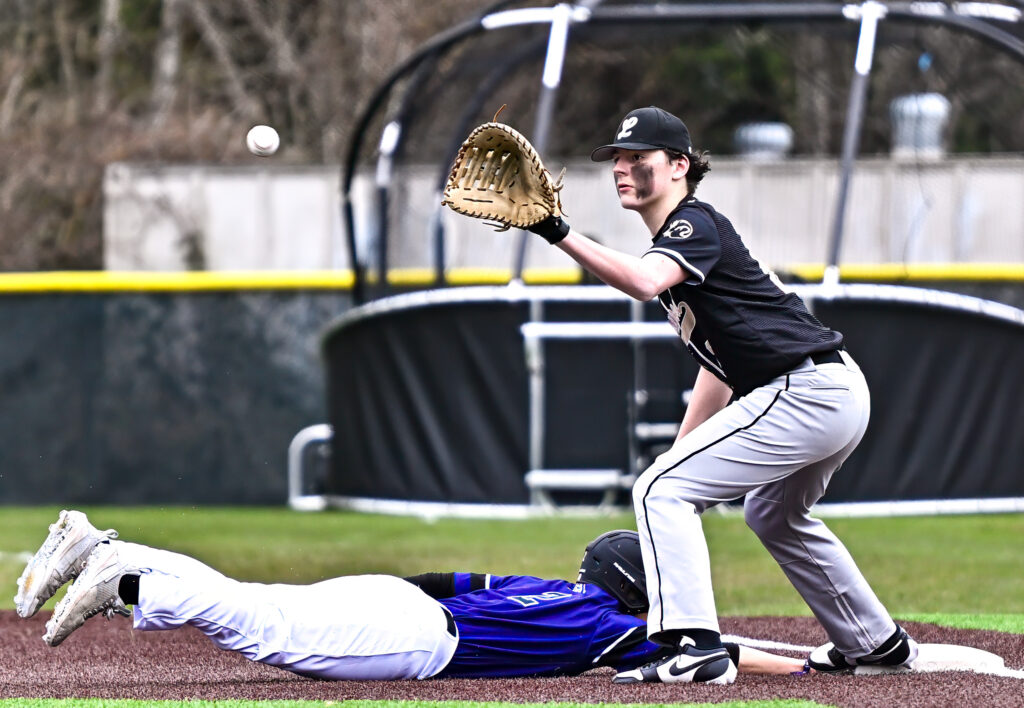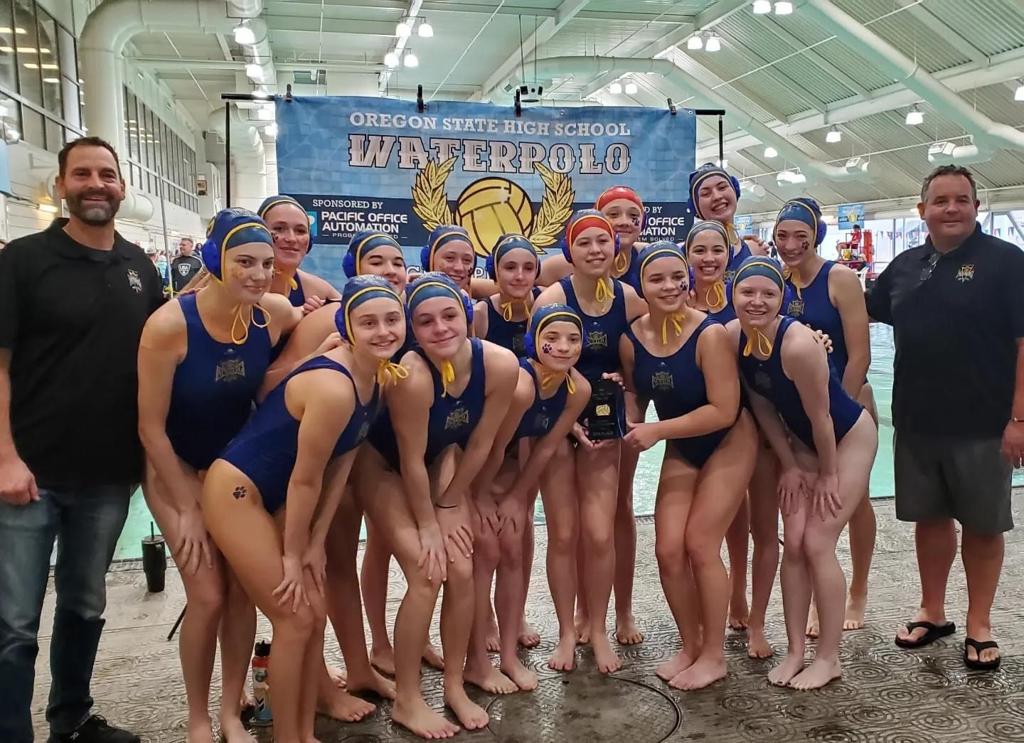College Sports
Matt Rhule Issues Transfer Portal Advice to Nebraska Team, Other College Football Players
Another round of the transfer portal is about to begin. The spring transfer portal window runs from April 16-25. Since the end of the 2024 season, more than 2,100 FBS scholarship players have entered the portal. Nebraska football coach Matt Rhule talked for several minutes about the transfer portal at his spring practice media availability […]
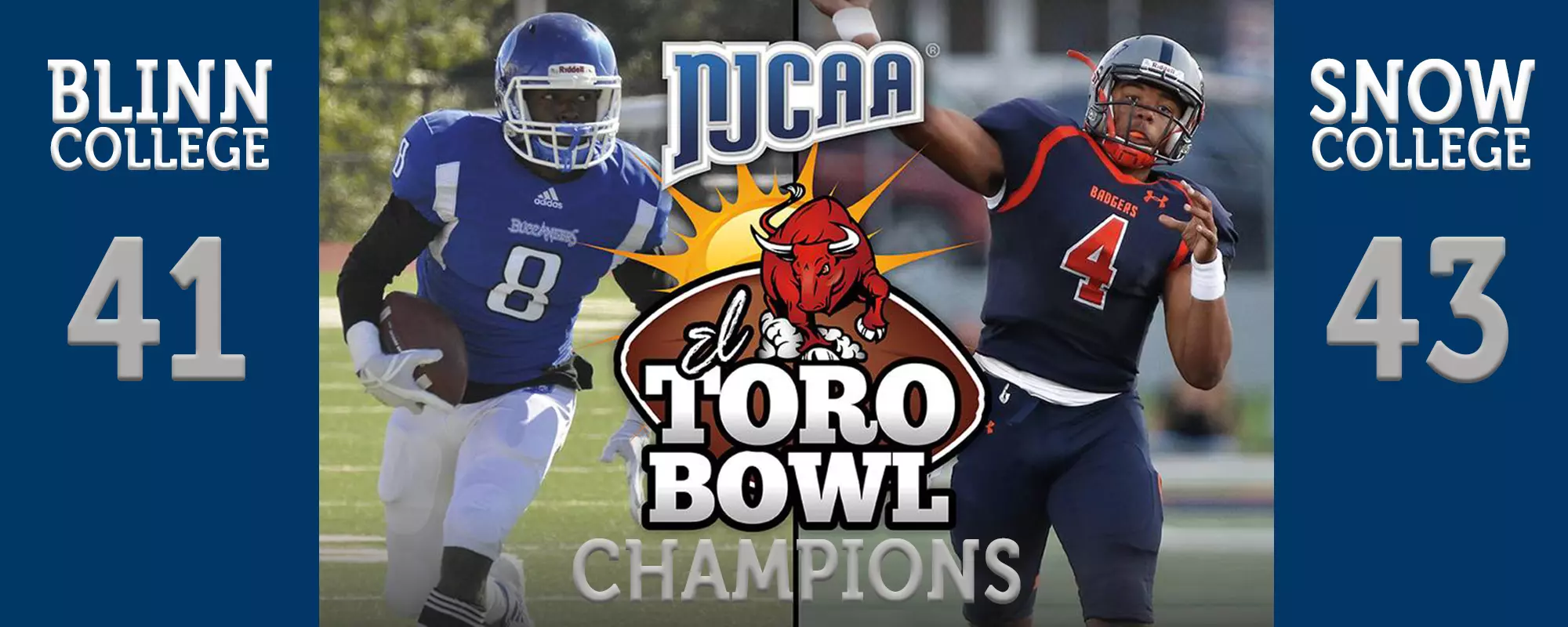

Another round of the transfer portal is about to begin.
The spring transfer portal window runs from April 16-25. Since the end of the 2024 season, more than 2,100 FBS scholarship players have entered the portal.
Nebraska football coach Matt Rhule talked for several minutes about the transfer portal at his spring practice media availability Saturday.
“Players sometimes make a mistake going into the portal looking for an improved situation,” Rhule said. “Unless you’re not going to play somewhere, or you’re not going to be in the 105, then absolutely you should find somewhere.”
Rhule said he wants players to make the “right decision based on the right information.”
“Don’t come to me later and say, ‘well, they told me this but they end up doing that’,” Rhule said. “If you’ve been here and we’ve always told you the truth as best we know, then if we tell you, ‘hey this is where we see you’, then you should probably listen as opposed to somebody out there. Everybody out there always has something better for you. Make sure you’re listening to the right information and then do it the right way.”
Rhule’s message went beyond addressing the Huskers and was for college football players everywhere.
“I think too many outside people – parents, coaches – we’re always trying to find a better situation. If you really are an NFL player, or you’re really a great player, you’ll make your situation good enough by just getting better,” Rhule said. “If you’re going to listen to some other college coach tell you, ‘hey you’ll be the starter,’ then don’t call me afterwards and say, ‘well, I wasn’t the starter’.”
As for his own team, Rhule said those discussions now are similar to what was done for the last portal window.
“We told everybody in December, because that’s what I thought was fair, ‘hey, if we did the 105 right now you would be in the 105, you would be out of the 105, you would be competing for the 105’,” Rhule said. “We try to do that to be fair. We tried to be transparent since day one.”
Rhule believes Nebraska has the best opportunities for players looking to develop and improve over their time in college.
“If you stay in this place, and you stay in this weight room, this training facility, this training table for four years, you’re probably going to get developed,” Rhule said. “Chasing a better situation because you have a chance to go quicker but you’re not getting the same training and all that, it doesn’t make as much sense to me.
“If you’re at a place like this, you should really only leave if you’re never going to get on the field and you want to play.”
Bryant, Rhule’s son, is a freshman at the University of Nebraska. Rhule said if his son wasn’t happy then he and his wife would help him find some place where he would be. That same rule applies to players on the team.
“If someone’s not happy here, I want them to leave,” Rhule said. “Just don’t leave because someone’s saying, hey, I can get you a couple more bucks or a couple more this or a couple more that.’ I think a lot the guys that leave, they find out not all that’s true.”
Rhule is hopeful that House settlement ultimately includes a grandfather clause to have previously rostered players remain on the team.
“I was in Big Ten meetings early on where I was a major proponent of grandfathering people in. Even if you went 120, 115, 110, 105. I know some other conferences had some concerns about that,” Rhule said.
Rhule noted that he has been “pleased” with some of the guys that have moved on and found spots, even though he hated to see them go. He mentioned Mason Jones to Lindenwood as well as Ryker Evans and Dae’vonn Hall at UNK.
“I want the guys to be somewhere, in school, playing football, happy,” Rhule said.
You can watch Rhule’s full media availability below.
Stay up to date on all things Huskers by bookmarking Nebraska Cornhuskers On SI, subscribing to HuskerMax on YouTube, and visiting HuskerMax.com daily.
College Sports
All-WIAC Men’s Tennis Awards Announced
Men’s Tennis 5/7/2025 11:59:08 AM Story Links MADISON, Wis.–The Wisconsin Intercollegiate Athletic Conference (WIAC) has announced its East Division and West Division men’s tennis awards for the 2025 season. In the East Division, The College of New Jersey’s Harrison […]
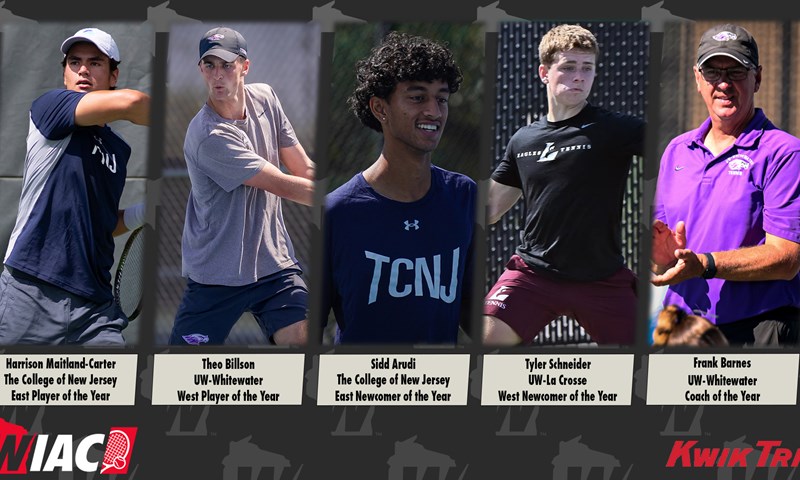

Men’s Tennis
MADISON, Wis.–The Wisconsin Intercollegiate Athletic Conference (WIAC) has announced its East Division and West Division men’s tennis awards for the 2025 season.
In the East Division, The College of New Jersey’s Harrison Maitland-Carter claimed Kwik Trip Player of the Year, while teammate Sidd Arudi collected Kwik Trip Newcomer of the Year distinction.
In the West Division, University of Wisconsin-Whitewater’s Theo Billson was tabbed the Kwik Trip Player of the Year, and UW-La Crosse’s Tyler Schneider received Kwik Trip Newcomer of the Year accolades.
UW-Whitewater head coach Frank Barnes claimed Kwik Trip Coach of the Year honors for both divisions for the second straight year. He has directed the Warhawks to a 14-8 record, the WIAC title and a spot in the NCAA Division III Championship.
Maitland Carter posted an 11-6 dual record in singles action and 13-4 dual mark in doubles contests, while Arudi accumulated dual records of 1-1 and 8-3, respectively.
Billson owns a 10-7 dual record in singles competition and 12-5 mark in doubles action, while Schneider finished 14-6 in dual singles contests and 16-4 in dual doubles matches.
A newcomer is defined as a student-athlete who used his first season of participation in men’s tennis this season. Transfers are not eligible unless they didn’t participate in men’s tennis at their previous institution.
An All-Sportsmanship Team was named for individuals that displayed exemplary sportsmanship throughout the season. It included one member from each team as selected by that team.
2024-25 All-WIAC Men’s Tennis Team
First Team – Singles (East Division)
Chris Chippari, State Univ. of New York-Oneonta, Sophomore, Poughkeepsie, N.Y. (Roy C Ketcham)
Alex Loope, Rutgers Univ.-Camden, Graduate Student, Norfolk, Va. (Norfolk Collegiate School)
Harrison Maitland-Carter, The College of New Jersey, Junior, Toronto, Ontario (Saddlebrook Prep – Fla.)
William Schmid, State Univ. of New York-Oneonta, Junior, Yonkers, N.Y. (Salesian)
Brett Schuster, The College of New Jersey, Junior, Cherry Hill, N.J. (East)
Alberto Thomas, The College of New Jersey, Junior, Saint-Louis, France (CNED)
First Team – Doubles (East Division)
William Schmid, State Univ. of New York-Oneonta, Junior, Yonkers, N.Y. (Salesian)
Chris Chippari, State Univ. of New York-Oneonta, Sophomore, Poughkeepsie, N.Y. (Roy C Ketcham)
Asa Wong, The College of New Jersey, Junior, Johns Creek, Ga. (William & Reed Academy)
Harrison Maitland-Carter, The College of New Jersey, Junior, Toronto, Ontario (Saddlebrook Prep – Fla.)
Brett Schuster, The College of New Jersey, Junior, Cherry Hill, N.J. (East)
Alberto Thomas, The College of New Jersey, Junior, Saint-Louis, France (CNED)
First Team – Singles (West Division)
Steven Benoy, Stevens Point, Senior, Stoughton, Wis. (Stoughton0
Theo Billson, Whitewater, Sophomore, Lindfield, England (BHASVIC)
Reuben Giorgio, Whitewater, Senior, Perth, Western Australia (Applecross)
Tyler Nelson, Whitewater, Junior, Waunakee, Wis. (Waunakee)
Tyler Schneider, La Crosse, Freshman, Whitefish Bay, Wis. (Whitefish Bay)
Ethan Wurtzel, Eau Claire, Senior, Menomonie, Wis. (Menomonie)
First Team – Doubles (West Division)
Ethan Wurtzel, Eau Claire, Senior, Menomonie, Wis. (Menomonie)
Juan Gallego, Eau Claire, Sophomore, Madison, Wis. (Memorial)
Alex Aranda, La Crosse, Sophomore, Fox Point, Wis. (Nicolet)
Nikko Vilwock, La Crosse, Freshman, Sun Prairie, Wis. (United)
Theo Billson, Whitewater, Sophomore, Lindfield, England (BHASVIC)
Reuben Giorgio, Whitewater, Senior, Perth, Western Australia (Applecross)
All-Sportsmanship Team
Steven Benoy, Stevens Point, Senior, Stoughton, Wis. (Stoughton)
Seth Cheung, State Univ. of New York-Oneonta, Sophomore, Somers, N.Y. (Somers)
Reuben Giorgio, Whitewater, Senior, Perth, Western Australia (Applecross)
Brady Horstmann, La Crosse, Junior, Cedar Rapids, Iowa (Xavier)
Alex Loope, Rutgers Univ.-Camden, Graduate Student, Norfolk, Va. (Norfolk Collegiate School)
Max Nussbaum, The College of New Jersey, Freshman, Fair Lawn, N.J. (Fair Lawn)
Otto Schluter, Eau Claire, Senior, Henfield, England
Kwik Trip East Division Player of the Year: Harrison Maitland-Carter of The College of New Jersey
Kwik Trip East Division Newcomer of the Year: Sidd Arudi of The College of New Jersey
Kwik Trip West Division Player of the Year: Theo Billson of Whitewater
Kwik Trip West Division Newcomer of the Year: Tyler Schneider of La Crosse
Kwik Trip Coach of the Year: Frank Barnes of Whitewater
Max Sparger Scholar Athlete: Steven Benoy of Stevens Point
# # # # #
College Sports
Rumors Abound of Pairwise Demise. Meet Its Potential Replacement: The NPI
There have been rumors swirling for a little while now that the NCAA might be moving away from its sometimes-appreciated, sometimes-loathed, always-misunderstood hockey tournament selection criteria, the Pairwise Rankings. Those rumors came to a head on Tuesday afternoon as one of college hockey’s most respected reporters put the scuttlebutt to print (or at least to […]
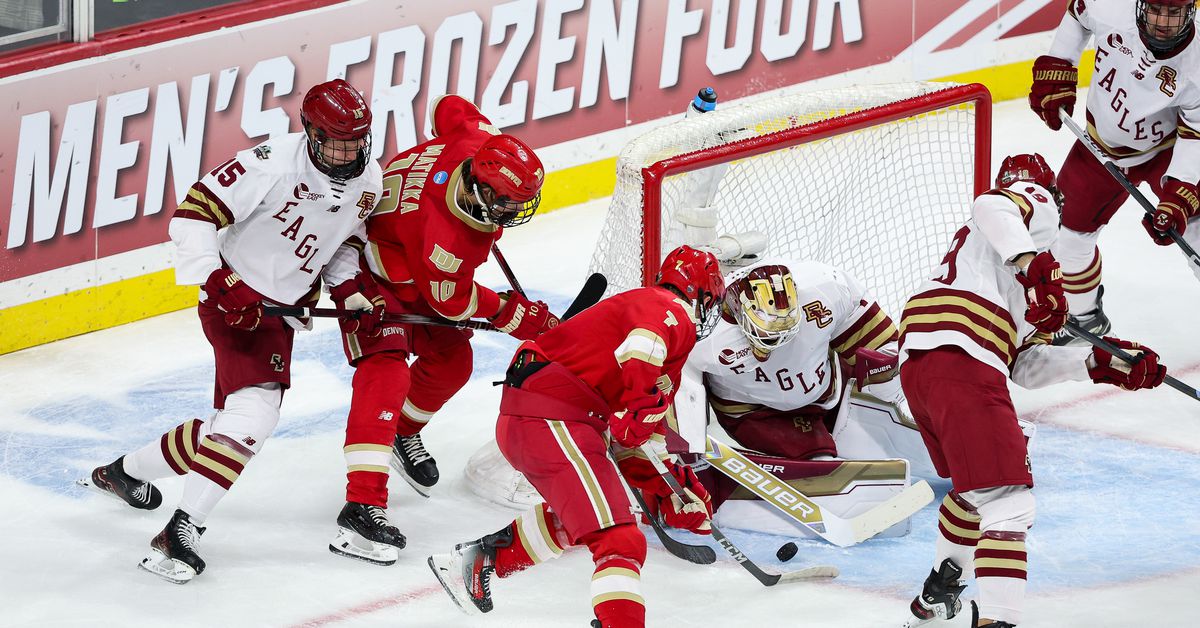
There have been rumors swirling for a little while now that the NCAA might be moving away from its sometimes-appreciated, sometimes-loathed, always-misunderstood hockey tournament selection criteria, the Pairwise Rankings. Those rumors came to a head on Tuesday afternoon as one of college hockey’s most respected reporters put the scuttlebutt to print (or at least to screen):
Today’s column: David Carle pitched the case for home regionals to NCAA prez Charlie Baker + the Pairwise Rankings are likely on their way out + NCHC discusses TV option, including punting on reg season + portal window shrinking? Read that and more here: https://t.co/qt8pOFsty9
— Brad Elliott Schlossman (@SchlossmanGF) May 6, 2025
There was initially some confusion as to whether the NPI would be replacing the Pairwise entirely, or just replacing the RPI in the Pairwise calculation like the women do, but we checked with a couple sources and it does appear that, if approved, the Pairwise would indeed be replaced entirely with the NPI in both men’s and women’s D-I hockey.
That got some people on Twitter searching for a more in-depth explanation to how the math works. And as a site that likes to stay on top of the nuances of college hockey rankings and indeed has run an NPI calculator for women’s hockey since their tweak to the Pairwise in the 2022-2023 season, we’re happy to oblige.
What is NPI?
It stands for “NCAA Percentage Index.” Some sites call it “NCAA Power Index,” but that seems to be unofficial and/or not the accurate name.
The first time we saw NPI mentioned was back in 2020 after the women’s hockey summer meetings. The oversimplified way to describe it is a love child of RPI and KRACH:
- RPI uses a weighted combination of winning percentage (25%) and strength of schedule (75%). Strength of schedule is the complicated part here: It’s split into Opponents’ Winning Percentage (24%) and Opponents’ Opponents’ Winning Percentage (51%). That is — take a sum of the winning percentages of all your opponents, divide it by the number of games played, then do the same with the opponents’ winning percentage of your opponents, and weight those numbers accordingly. Don’t forget that you have to take out your opponents’ games against you from the calculation!
…Yeah, it’s messy. It’s certainly doable with a spreadsheet, but it’s unnecessarily mucky and the ratios feel pretty arbitrary.
- KRACH is run entirely differently — first off, it’s recursive, which means you need to know everyone’s ratings in order to determine everyone else’s ratings. It’s defined such that if you take this formula: (Team A’s Rating) / ( Team A’s Rating + Team B’s Rating ), what you’ve done is calculated Team A’s odds of beating Team B. If you do that for every opponent, sum up the odds of Team A beating all of its opponents, and divide that number by how many games they played… then like magic, that equals the exact number of games Team A actually won (which will be true for every team in the rankings).
Officially, this is BCI’s Most Favorite Perfect Ranking System, partially because of its mathematical beauty with no arbitrary weights involved… but we think coaches are afraid of math. Sorry coaches; we said what we said.
- NPI sprinkles in some aspects of both RPI and KRACH. It takes the familiar ratio of 25% winning percentage to 75% strength of schedule (though they could tweak this ratio; it’s been changed before), but the strength of schedule is defined as just “your opponent’s NPI rating,” making it a recursive calculation. Despite that recursiveness, it makes the math a lot cleaner.
Let’s say you won a game against a team with an NPI of 0.700. The strength of schedule factor for that game is just 0.700 — you don’t have to go through the nonsense of calculating all that team’s opponents’ records and their opponents’ opponents’ records. Your NPI for that game would simply be ( 1.000 x 25% ) + (0.700 x 75%) = 0.775. Do that simple calculation for every game you played and take the average, and there’s your team’s NPI rating.
But wait…how does that work if you need to know everyone’s NPI in order to calculate everyone’s NPI?
Easy: Just assume everyone has a rating of 0.500, run the calculation once, and everyone will get a new rating. Run the calculation again using those new ratings, and they’ll change again. Do that a couple hundred times, and eventually everyone’s ratings converge to numbers that stop changing meaningfully after each run. Those convergent numbers are your NPIs.
What about records against common opponents and head-to-head results?
These are just comparison points in the Pairwise Rankings and would no longer be used. The way the Pairwise worked was that each team would be compared against each other team one at a time, and you’d see who got the most number of points using this formula:
-Higher NPI got 1 point (and was the tiebreaker)
-Better record against common opponents got 1 point
-Each head to head win was worth 1 point
So, if Team A was 2-0 (2 points) against Team B, but Team B had a higher NPI (1 point) and a better record against common opponents (1 point), Team B would “win the comparison” 2-2 (with NPI being the tiebreaker) and get one “Comparison Point.” You’d compare Team A against every team and see how many Comparison Points they got, then do the same with Team B against everyone, and so on, and then you’d rank teams based on who won the most Comparisons against the most teams.
In practice, 99% of the time this would just result in a ranking identical to NPI, since most teams don’t play each other. The only way you could beat a team in a comparison while having a worse NPI was to have a better head to head record against them *and* have a better record against common opponents, or, have a whopping 3 head to head wins against that team and no losses. Since most teams don’t even play each other head to head, this rarely resulted in any real change to the rankings — which is why most people are fine with nixing these from the system entirely. It just complicated things without actually adding much benefit.
What about the “Quality Win Bonus”?
In women’s hockey, this didn’t go away, it was just calculated a little differently from the RPI days. Instead of a bonus based on the ranking of your opponent, you got a bonus based on the rating of your opponent. In women’s hockey, you get a quality win bonus if your opponent’s NPI was above 0.515. The higher your opponent’s NPI is above 0.515, the greater your quality win bonus.
I would expect this to stick around in men’s hockey with a similar calculation.
Home/Away Split?
Women’s hockey doesn’t use a home/away split in its NPI, but assuming it’s kept as a factor for men’s hockey, the home/away split calculation would presumably not need to change at all. When taking an average of each game’s NPI, each game would be given a higher or lower weight in the weighted average based on if you won or lost the game at home or on the road (80% for a home win or road loss, 120% for a road win or home loss). Mathematically, there would be no need to change this when moving from RPI to NPI.
Overtime/Shootout Results?
Same thing, there should be no real changes to this part (though they could tweak it if they want to). A game going to a shootout counts as a tie (50% of a win). An overtime win counts as 67% of a win, and an overtime loss counts as 33% of a win.
Does all this mean we can finally stop “removing bad wins”?
Lol. Lmao, even.
No. This is one of the biggest gripes people have with RPI, but no, this wouldn’t go away with a switch to NPI. It’s just as likely that a really good team beating a really bad one will see a drop in their NPI, and that game has to be ignored. Not only that, but women’s hockey started removing good losses the last couple seasons too, for when a really bad team loses to a really good team but still sees an increase in their rating. So now we have two band-aids on the same problem. Yay!
Who Does This Help?
A switch to NPI would have seen the Big 10 & Hockey East schools (the two top conferences in college hockey this season) drop a bit on average this year had NPI been in use, while the bottom conferences saw an average rise.
That makes some sense — this is oversimplifying things a little, but if you’re changing the basis for your SOS calculation from winning percentages (a stat with a huge range between the top and the bottom; this year in women’s hockey winning percentages ranged from 0.939 to 0.148) to NPI (in women’s hockey the range was 0.691 to 0.395), then you can see how consistently playing top teams won’t boost your SOS quite as much under NPI (and that playing bottom teams will).
But honestly, anyone with strong feelings that a swap to NPI will help or hurt the teams that play a better or worse strength of schedule is probably overthinking things. There’s a good bit of evidence that the Pairwise and NPI both undervalue teams from top conferences, and that KRACH does a better job than either of them at evaluating results against both top competition and weak competition. But we’re not moving to KRACH anytime soon, so you’re really splitting hairs comparing two imperfect systems.
Yeah, sorry; we love KRACH here at BCI.
Hopefully you enjoyed this deep dive into the numbers. The main takeaway here is that there isn’t a huge difference between what you’d get if you move from the Pairwise to NPI, so making the rankings easier to understand is a step in the right direction that I think both the coaches and fans would welcome.
It will never stop the annual complaints about certain teams getting in over others, but we wouldn’t want to lose that entirely, would we?
College Sports
Abbey Murphy returns to Gophers women’s hockey for fifth season
It’s one more year of “Murph” for the Gophers women’s hockey team. All-America forward Abbey Murphy will return to the Gophers for the 2025-26 season, coach Brad Frost announced Wednesday, keeping one of the top women’s hockey players in the world with Minnesota for a fifth collegiate season. “I’m beyond excited to announce I will […]

It’s one more year of “Murph” for the Gophers women’s hockey team.
All-America forward Abbey Murphy will return to the Gophers for the 2025-26 season, coach Brad Frost announced Wednesday, keeping one of the top women’s hockey players in the world with Minnesota for a fifth collegiate season.
“I’m beyond excited to announce I will be coming back for my final year of college hockey,” Murphy said in a statement. “I am pumped for another go around with this team. It’s been a great ride, but we’re not done yet.”
Murphy, an Evergreen Park, Ill., native, has been with the Gophers since the 2020-21 season and had the opportunity for a fifth year because she used the 2021-22 season as redshirt season while training with Team USA for the Olympics. The NCAA also granted an extra year of eligibility for all athletes in the 2020-21 season because of COVID-19.
Murphy ranks sixth in program history with 103 career goals and has 92 career assists. Her career goal total ranks second among active players nationally, and her career goals per game percentage (.740) leads active players. With 195 points, she ranks third among active players in the NCAA. She also has a plus-111 rating in her 140-game career.
“We are ecstatic that Murph has chosen to come back,” Frost said in a statement. “She is a staple within our Gopher program and women’s hockey worldwide. Our team and college hockey will be better with her in it.’’
A member of the United States’ 2022 Olympic silver medal-winning team in Beijing, Murphy helped Team USA win the gold medal in April’s IIHF Women’s World Championship, scoring a goal in a 4-3 overtime win over Canada in the final. Murphy finished the tournament with three goals, three assists and a plus-6 rating.
College Sports
Zeev Buium Named to USA Roster for 2025 World Championship
Story Links 2025 World Championship Team USA at Worlds DENVER – Zeev Buium is aiming for another medal with the United States. The former University of Denver hockey defenseman was named on Monday to Team USA’s roster for the […]
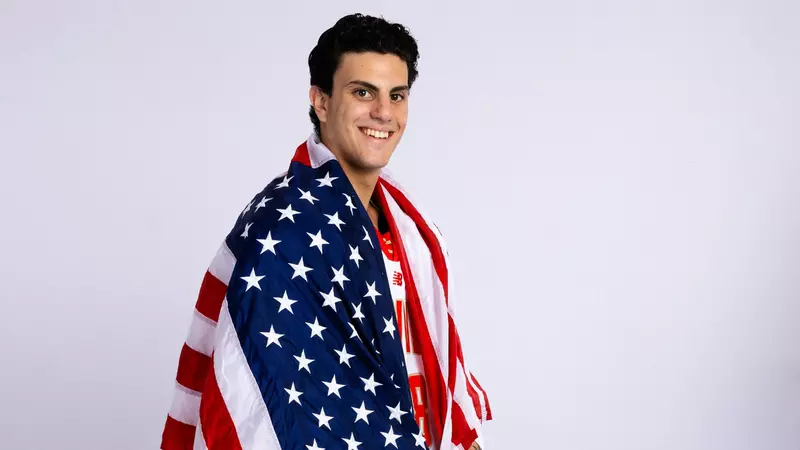
DENVER – Zeev Buium is aiming for another medal with the United States.
The former University of Denver hockey defenseman was named on Monday to Team USA’s roster for the 2025 IIHF World Championship in Stockholm, Sweden, and Herning, Denmark.
This is Buium’s first time representing the country at the senior level, but he is no stranger to wearing the red, white and blue. A former member of the U.S. National Team Development Program (2021-2023), Buium won gold medals with Team USA at the 2023 IIHF U18 World Championship, 2022 Under-18 Five Nations Tournament in Michigan and the 2021 Under-17 Four Nations Tournament in Finland. He helped the United States to a pair of silver medals at the 2021 Four Nations Tournament in Slovakia and 2023 Four Nations Tournament in Finland.
Most recently, Buium was a member of USA’s National Junior Team each of the previously two years that won gold medals at the 2024 and 2025 IIHF World Junior Championship on a squad that was led by Denver Richard and Kitzia Goodman Hockey Head Coach David Carle. Those marked the sixth and seventh under-20 championships by USA Hockey—all within the last 21 years—and was the first time the Americans had won back-to-back gold medals.
The San Diego, California, native was an alternate captain on the U.S. squad this past December and January and totaled six points on two goals and four assists in seven games, and he contributed assists on the game-tying and overtime-winning tallies in the Gold Medal Game against Finland on Jan. 5. He averaged 25:13 of ice time, the second-most among all players at the tournament.
This past season, Buium was named the NCHC Player of the Year, selected as a Hobey Baker Award Hat Trick finalist and was named the USCHO.com Player of the Year by tying for first among all NCAA defensemen with 48 points. His 13 goals were a career high and his 35 assists were second-highest for all skaters behind only teammate Jack Devine (44).
He signed a three-year, entry-level contract on April 13 with the Minnesota Wild, the team that selected him No. 12 overall in the first round of the 2025 NHL Draft. Buium became the first Wild player to make his NHL debut in the Stanley Cup Playoffs when he suited up in Game 1 against Vegas on April 20. He appeared in four postseason contests for Minnesota, totaling one assist, four penalty minutes and averaging 13:36 of ice time per game.
He finished his collegiate career ranked 10th in scoring among Denver defensemen with 98 career points (24g/74a), the most by a Pioneer defender in their first two years with the program since Greg Woods had a pair of 52-point performances in 1975-76 as a freshman and 1976-77 as a sophomore.
The United States is in Group B at the World Championship with Czechia, Switzerland, Germany, Denmark, Norway, Kazakhstan and Hungary and will play their preliminary round games at Jyske Bank Bozen in Herning, Denmark. The event begins on May 9 and runs through May 25, with the semifinals and medal contests being held at Avicii Arena in Stockholm. All USA games will be televised on NHL Network.
Team USA has won 20 medals in its history at the World Championship, with two golds, nine silvers and nine bronzes. The Americans’ last medal was a bronze in 2021. Their two golds came in 1933 and 1960, with the latter being held in conjunction with that year’s Winter Olympics in Squaw Valley. The team’s last silver was in 1956, also during the Olympics in Cortina d’Ampezzo.
United States 2025 World Championship Schedule
May 9 vs. Denmark, 12:20 p.m. MT
May 11 vs. Hungary, 4:20 a.m. MT
May 12 vs. Switzerland, 8:20 a.m. MT
May 14 vs. Norway, 8:20 a.m. MT
May 17 vs. Germany, 4:20 a.m. MT
May 18 vs. Kazakhstan, 8:20 a.m. MT
May 20 vs. Czechia, 8:20 a.m. MT
May 22 Quarterfinals, Time TBD
May 24 Semifinals (Stockholm), 6:20 a.m. or 10:20 a.m. MT
May 25 Gold & Bronze Medal Games, 7:20 a.m. or 12:20 p.m. MT
College Sports
Cedar Rapids RoughRiders draft the son of a former University of Iowa football quarterback
Cedar Rapids RoughRiders draft the son of a former University of Iowa football quarterback | The Gazette […]
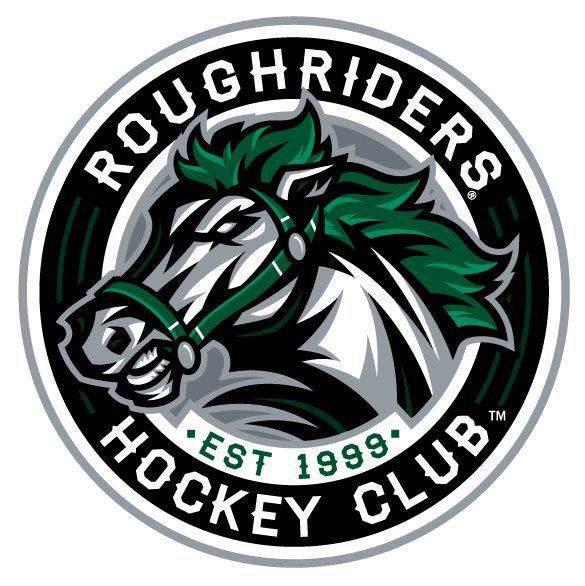
Skip to content

College Sports
Abbey Murphy to return for final season with Minnesota Gophers
Murphy, an up-and-comer in the U.S. women’s international program, can return due to an Olympic redshirt season and a COVID-era year of extra eligibility. MINNEAPOLIS — A high-scoring, fiercely competitive forward will be returning to the Minnesota Gophers hockey team by using an extra year of eligibility. Center Abbey Murphy, who tallied a career-best 65 […]

Murphy, an up-and-comer in the U.S. women’s international program, can return due to an Olympic redshirt season and a COVID-era year of extra eligibility.
MINNEAPOLIS — A high-scoring, fiercely competitive forward will be returning to the Minnesota Gophers hockey team by using an extra year of eligibility.
Center Abbey Murphy, who tallied a career-best 65 points during the 2024-25 season, announced that she would return to the Gophers to finish her eligibility. Murphy, who was officially a senior last season, has the opportunity to return after taking a redshirt season in 2021-22 and also being granted an extra year of eligibility due to the COVID pandemic.
“We are ecstatic that Murph has chosen to come back,” said Gopher women’s coach Brad Frost. “She is a staple within our Gopher program and women’s hockey worldwide. Our team and college hockey will be better with her in it.”
Murphy was a top-10 finalist for the Patty Kazmaier Memorial Trophy in 2024-25, which is awarded to the top player in NCAA women’s hockey. She finished fourth in the country with 33 goals and 32 assists, while leading the country in both game-winning goals (7) and shots (242).
“I’m beyond excited to announce I will be coming back for my final year of college hockey,” Murphy said in a released statement. “I am pumped for another go around with this team. It’s been a great ride but we’re not done yet. Go Gophers!”
The native of Evergreen Park, Ill., is part of the U.S. Women’s National Team’s “new guard,” making the roster for the 2022 Olympic team and then seeing her role grow in subsequent international events. During the recent 2025 IIHF World Championships, Murphy notched 3 goals and 3 assists in seven games in helping lead the U.S. to a gold medal. She should be a key producer on the 2026 U.S. Women’s Olympic Team.
-
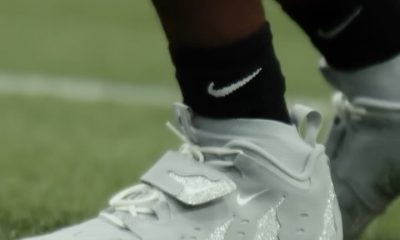
 Fashion2 weeks ago
Fashion2 weeks agoThis is poetry in motion.
-
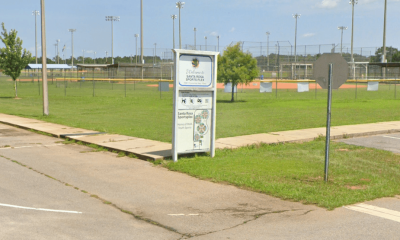
 Rec Sports2 weeks ago
Rec Sports2 weeks agoDeputies investigating incident that caused panic at Pace youth sports complex
-
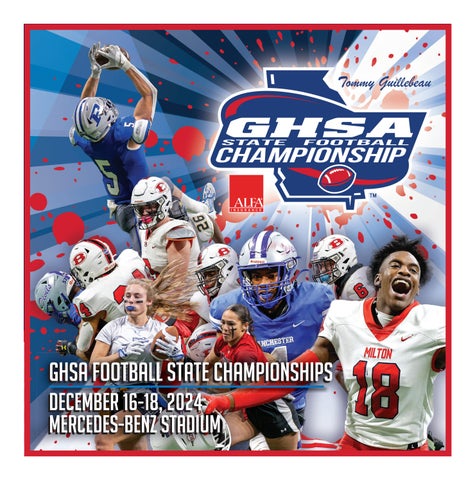
 High School Sports2 weeks ago
High School Sports2 weeks agoAppling County football to forfeit all 10 wins from 2024
-
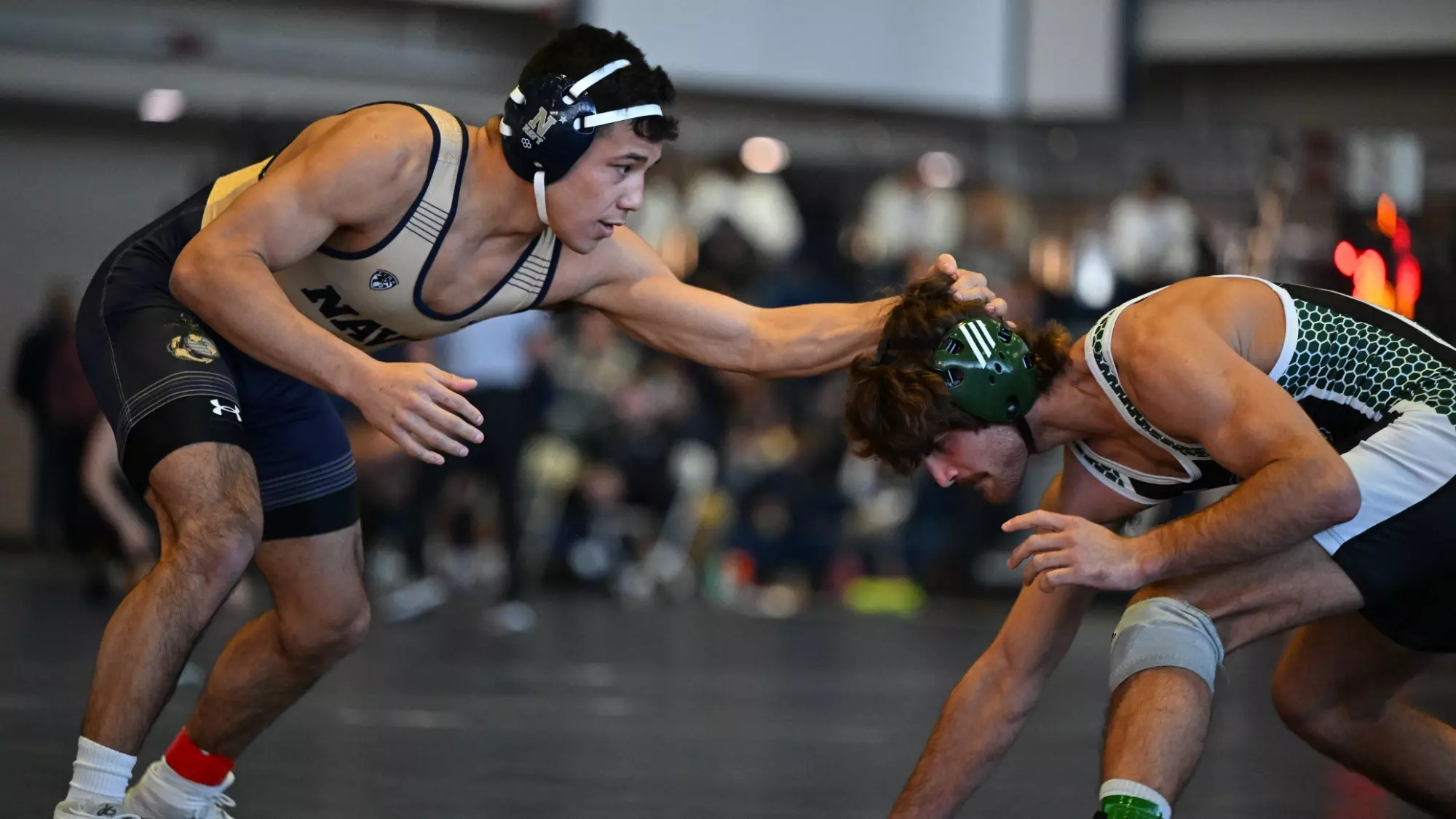
 College Sports2 weeks ago
College Sports2 weeks agoLehigh wrestlers prepare for wrestling U.S. Open
-

 NIL2 weeks ago
NIL2 weeks agoSave Like a Pro: NIL money isn’t free cash—taxes take a bite! Set aside part of …
-

 Sports2 weeks ago
Sports2 weeks agoHow to watch Yahoo Sports' NFL Draft Live show
-
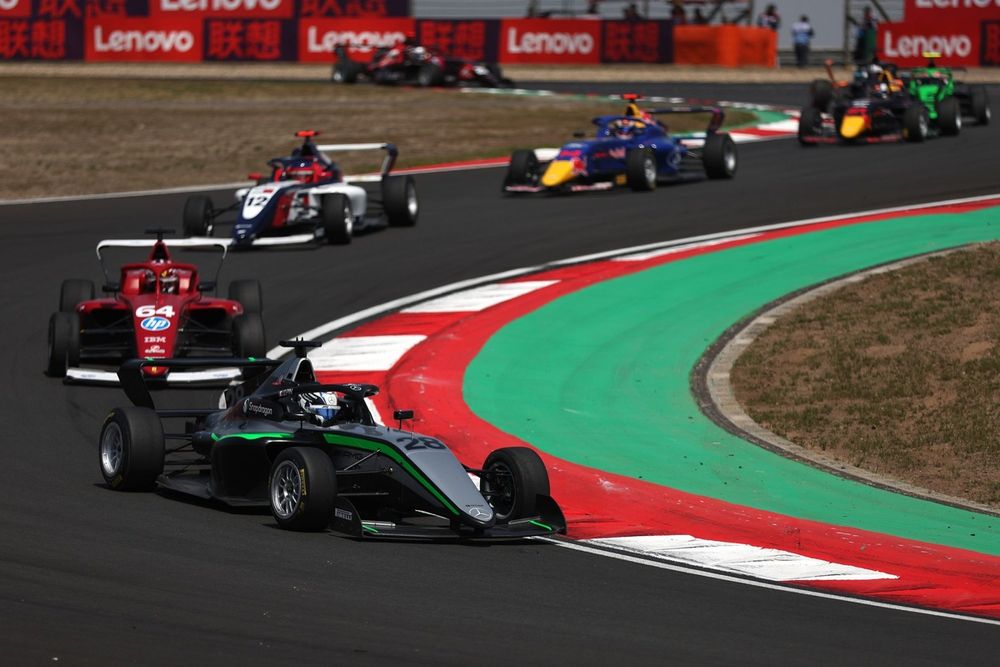
 Fashion2 weeks ago
Fashion2 weeks agoWatch Saudi Arabian GP free live stream
-
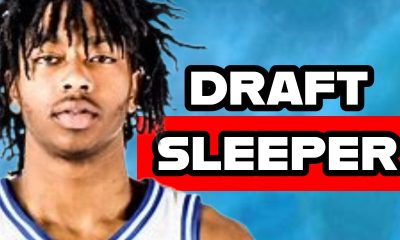
 College Sports1 week ago
College Sports1 week agoDuke basketball's Isaiah Evans on 2025 NBA Draft early entry list
-
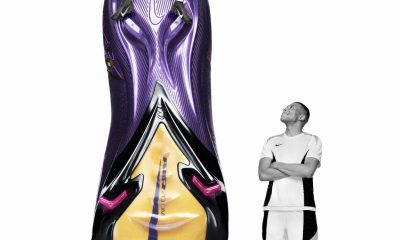
 Fashion2 weeks ago
Fashion2 weeks agohas always dreamed in Mercurial. Now his initials are on the boots. The new Kyl…
-
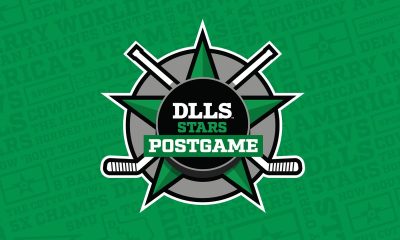
 Fashion4 days ago
Fashion4 days agoHow to watch Avalanche vs. Stars Game 7 FREE stream today






